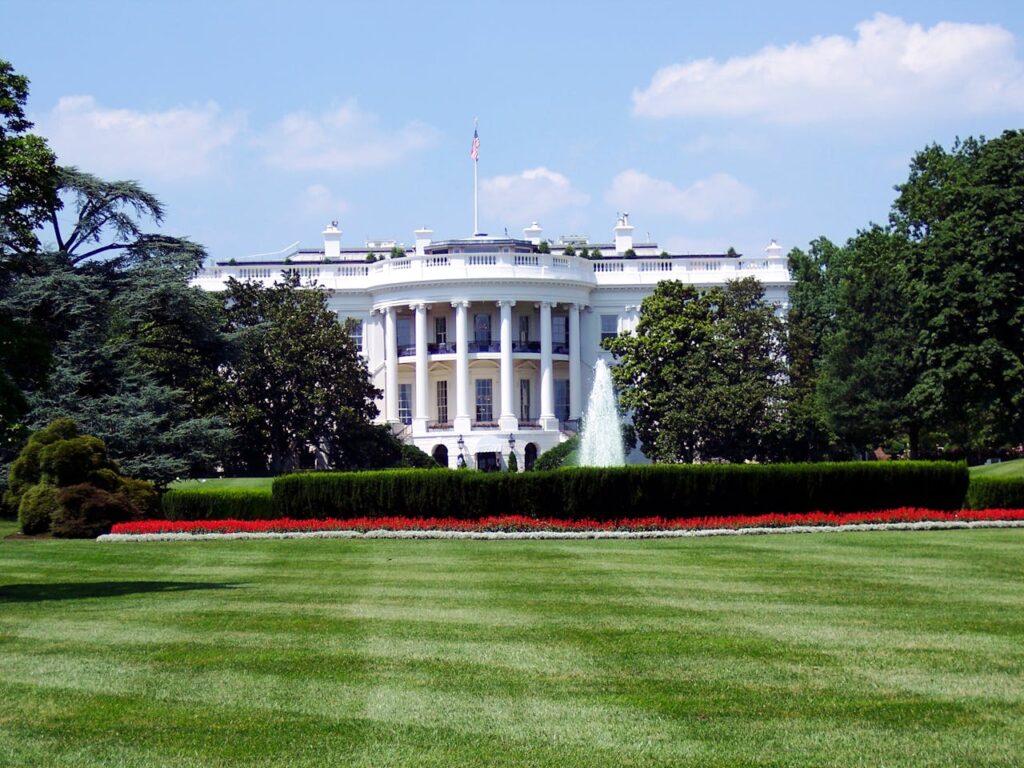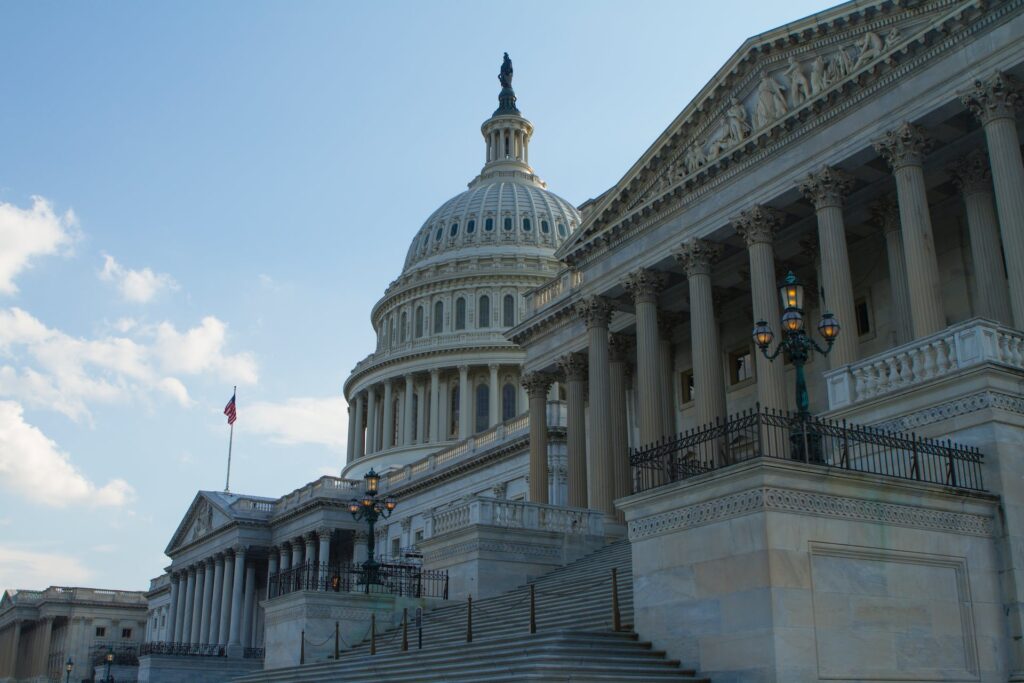The last couple of weeks have been chaotic to say the least with the attempted assassination of former President Trump and President Biden announcing he will not run for reelection. All this comes as Congress prepares to hear from Israeli Prime Minister Benjamin Netanyahu and start the mad dash to August recess. So, let’s get into it. Welcome to the Week Ahead!
The Administration
President Biden became the first President since LBJ to announce on July 21st, that he would not seek a second term as President of the United States. This raises a whole host of questions. Here is what we know and what we don’t yet know about this historic decision.
What we know:
- President Biden has endorsed Vice-President Harris to be the Democratic nominee for President
- Prominent Democrats, including the Clintons, Rep. Jim Clyburn, the campaign arm of the Congressional Black Caucus (CBC) and Congressional Progressive Caucus Chair, Rep. Jayapal (D-WA), have also endorsed Harris
- At this point, the Democratic National Committee is planning on moving ahead with the plan to formally nominate their candidate by virtual roll call in the first week of August
What we don’t know yet:
- What will the Democratic National Convention look like? Open Convention? Brokered convention?
- Will anyone challenge Harris?
- Who will be the Democratic Vice-Presidential nominee?
President Biden not seeking a second term also raises questions about what the rest of his term will look like. The President is determined to serve through the end of his term, but prominent Republicans are already calling for President Biden to resign effective immediately. We’ve heard rumors that efforts to get President Biden’s cabinet to invoke the 25th Amendment may see a new lease on life following Biden’s announcement.
President Biden’s remaining months in office may be spent trying to cement his legacy. Something that could make that more challenging is the recent repeal of Chevron Deference Doctrine by the Supreme Court, which ended the long-held practice of giving deference to federal agencies when the laws they are tasked with implementing are not clear. How the Biden Administration navigates in this new post-Chevron era will impact the likelihood that notable health care rules, including a nursing home staffing mandate and one that would regulate lab-developed tests as medical devices, survive legal challenges.
The Senate
Waiting on Appropriations
The big question in the Senate: what is the timeline for marking up the remaining appropriations bills? On July 11, the committee approved the :Legislative Branch, Ag-FDA, and the Military Construction-VA bills unanimously. On July 25, the Committee is scheduled to markup the Commerce-Justice-Science, State and Foreign Operations, and Transportation-House and Urban Development bills.
What about the rest? If the Appropriations Committee advances the three bills they are scheduled to markup on July 25, that still leaves 6 remaining appropriations bills, including the one for Labor-HHS. Will the Senate Appropriations Committee continue its record of bipartisanship, or will it get caught up by partisan disagreements or political gamesmanship?
Senate Health Care Hearings This Week
- July 24: Senate Homeland Security and Governmental Affairs Committee hearing to consider S. 4667, the Risky Research Review Act, S. 4697, the Healthcare Cybersecurity Act of 2024, and H.R. 3254, the First Responder Access to Innovative Technologies Act
- July 25: Senate HELP Committee hearing to authorize an investigation into the bankruptcy of Steward Health and subpoena Chairman and CEO Dr. Ralph de la Torre
The House
Health Care Week on Hold?
Recent talk about a “Health Care Week” in the House where several health care bills would be considered may be put on hold because of the attempted assassination of former President Trump. Conversations we are having on the Hill seem to suggest that the assassination attempt has sucked the oxygen out of the room needed to talk about anything else. It seems likely that any remaining oxygen left this week will focus on the news of Biden’s dropping out of the race and what the new Democratic ticket will look like.
So what? There are only two legislative weeks left before August recess. After that, election season will be in full swing, and before you know it, we are eating turkey and singing Christmas carols. The time is especially short for House Energy and Commerce Chair Cathy McMorris Rodgers (R-WA) who is a champion of many of the bills that might be considered during a “Health Week” and one of the members who is retiring from Congress.
Appropriations Woes
The House also must fit appropriations into the already tight schedule, and the recent failure of the House to pass its appropriations bill for the Legislative Branch (usually a light lift) signals there may be trouble ahead. Given these difficulties, it seems likely that the House will need to consider a short-term continuing resolution to keep the government funded from October through the election. That doesn’t mean House leadership is giving up on passing appropriations legislation. On July 22, the House Rules Committee is scheduled to meet to consider four appropriations bills (Financial Services and General Government, Interior and the Environment, Energy and Water, and Agriculture and FDA.
One more thing: Even if any of the House appropriations bills are DOA in the Democratic Senate, these bills still serve as important markers for what members care about.
House Health Care Hearings
- July 22: House VA Subcommittee on Technology Modernization hearing on Assessing Electronic Health Records Modernization
- July 23: House Oversight Committee hearing on PBMs
- July 23: House Energy and Commerce Health Subcommittee hearing on the CDC
- July 24: House Natural Resources Subcommittee on Indian and Insular Affairs Legislative hearing, including legislation related to IHS
There You Have It
Did you watch the RNC? If you did, you may have gotten a free Kid Rock performance. That was just one thing that made the final night unique, even though Kid Rock has been a mainstay of previous Republican Conventions. Now we look ahead to the DNC which is set to be interesting for a whole different set of reasons. Make it a great week!










